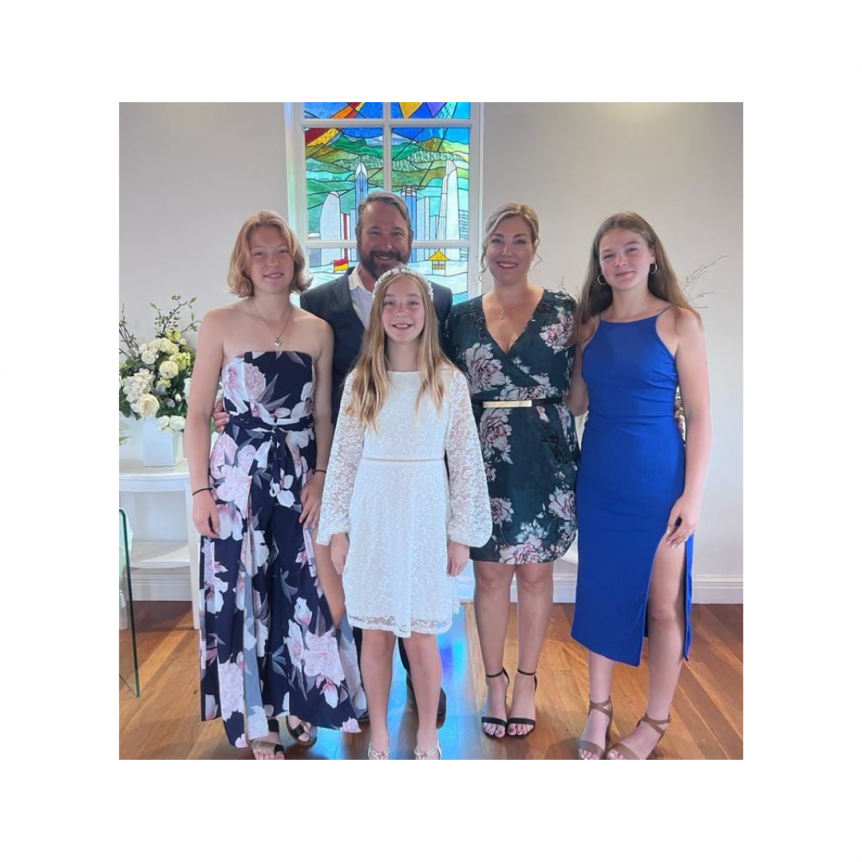In light of International Women’s Day, Emily Silberberg, our Forestry Program Manager has answered some pressing questions about her experiences working in a male dominated industry. She shares her first experiences working with a strong female leadership team, not always getting the balance right between family, home and work life, as well as sharing her passion on the important role our forests play in society.
Forestry has traditionally been a very male dominated industry, what made you want to get into forestry?
I always knew I wanted a career that was science based and involved working outdoors managing the environment. The Bachelor of Science (Forestry) seemed to offer a great foundation on which I could build my career into a multitude of areas. As it turns out, I naturally progressed into forest certification. I worked with a plantation company that was one of the first to achieve FSC® forest management certification, as well as developing systems for safety, quality and environmental management. Managing various certifications is ultimately what led me to Global-Mark 15 years later.
Forestry seems a relatively polarising topic in Australia, have you found that challenging?
Absolutely! I have found this the most difficult aspect of my 20+year career. I’ve had more than my fair share of abusive emails and phone calls and been subjected to multiple external investigations. Forest certification dictates the requirement for stakeholder consultation and engagement but offers no recourse for frivolous and vexatious claims. I feel forestry has got a very bad rap in this country compared to other land use industries. In fact, in a recent study, forestry was found to have a small impact on threatened species (high impact to 2 endangered species) compared to agriculture (high impact to 19 endangered species) and urban development (high impact to 12 endangered species). Admittingly, forestry doesn’t do a great job of promoting all the benefits the industry provides for outside of employment. Such benefits include the enormous amount of fire resources the industry contributes; the extensive biodiversity monitoring programs; environmental projects (such as erecting nest boxes, revegetation projects or providing free seedlings for koala habitat); pest and weed control operations; or sponsorship for local communities. There is a simplistic view that cutting trees down is bad. Provided forest managers assess and implement measures to protect the range of values that a forest provides, there is no reason we can’t have our forests and use them too. Trees are renewable! We need forest-based products and Australia is already a net importer. Now we are facing the closure of the Western Australian and Victorian native forest industries, so this is only going to get worse. It can be very frustrating and disheartening at times.
That does sound like it can be stressful. How do you manage that stress, plus be a mum and a wife and work full time?
I’m certainly not unique in that regard. I think most women are constantly juggling career with family life, sometimes we don’t always get that balance right. I’m very lucky in that I have a very supportive and helpful husband (father to our three beautiful girls) and hands-on parents that live around the corner. Trying to do what I do without that support would be impossible. I think as women we put so much pressure on ourselves to do all and be all. To be the perfect mother, wife, friend, daughter, employee, to keep an immaculate house and cook delicious nutritious meals. And then we wonder why there isn’t much left in the tank! Whilst it’s an ongoing struggle to manage that expectation, I have learnt not to sweat the small stuff. I really don’t care anymore if people judge me because my house is messy or we’re eating baked beans for dinner.
I’m also fortunate to live in one of the most beautiful places in the world (Jervis Bay) with majestic beaches where I can go to de-stress. My husband and I made the decision 9 years ago to move to Jervis Bay to achieve a better lifestyle. Then when COVID hit, it ended up being a blessing for us in that my husband now predominately works from home rather than travel to Sydney twice a week. Global-Mark is also a fantastic family orientated company to work for with a strong female leadership team. It’s the first time I’ve had a female boss, and it is certainly refreshing. I have a home-based office with a few trips into the Sydney office every month. This enables me to attend a school awards presentation or to run the kids to their sports, and to get food on the table most nights. Yes, I might work late at night or early in the morning, but it all balances out in the end. Life would be so much harder without that flexibility.
What advice would you have for aspiring female foresters or any woman going into a male dominated industry?
To work in the forest industry, you need to be thick skinned. You can’t always take it personally and you can’t always take it home with you. I’m proud of this industry and I just wish it had more support and recognition for all the positive ways they contribute to society and land management. To be successful in a traditionally male dominated industry, you need to be firm to get your opinion heard but also fair to be respected. Time again I could be voicing an opinion and not be respected or heard, but as soon as a male colleague says the same thing, the policy suddenly changes. So, a combination of determination and confidence goes a long way. Be sure of yourself and back yourself to express your opinion. I don’t think women are naturally assertive, but if you want to survive in a male dominated industry, you need to find it within you.


